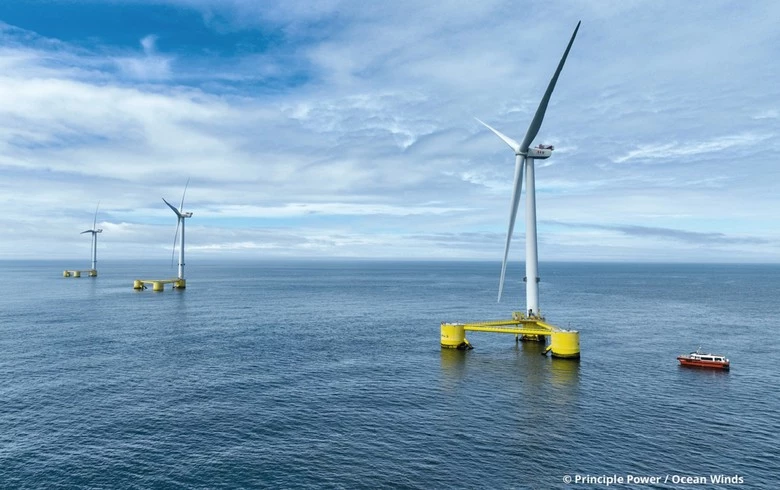The US Department of Energy (DOE) unveiled the recipients of Phase Two of the Floating Offshore Wind Readiness (FLOWIN) Prize on Wednesday, marking a pivotal step towards bolstering the manufacture and deployment of floating offshore wind structures.
Each of the five victorious teams will receive a cash award of USD 450,000 (EUR 415,435) along with USD 100,000 in technical assistance at a DOE national laboratory.
Among the winners is a collaborative effort between Principle Power and Aker Solutions, which aims to advance manufacturing, supply chain, and deployment strategies for WindFloat foundations in the US market.
Seth Price of Principle Power emphasized the significance of the competition, stating, “The FLOWIN prize has provided us with a unique opportunity to explore ways to serialize fabrication, drive further innovation and reduce costs for floating offshore wind.”
Christoffer Valstad, Senior Vice President of Renewables US at Aker Solutions, echoed this sentiment, noting, “The FLOWIN prize has provided us with a unique opportunity to explore ways to serialize fabrication, drive further innovation and reduce costs for floating offshore wind.”
Other winners include PelaStar of Seattle, Washington, which is advancing a lightweight tension-leg platform design, and Technip Energies, whose INO15 semi-submersible floating platform is making strides in the industry.
Additionally, Tetra Triple-One of Boston, Massachusetts, and Coral Gables, Florida-based WHEEL US were recognized for their innovative floating platform designs.
Administered by the National Renewable Energy Laboratory, the FLOWIN Prize boasts a total cash pool of USD 5.85 million, in addition to technical support vouchers.
In the upcoming Phase Three of the competition, participants will develop location-specific implementation pathways for domestic manufacture and deployment of their technologies. At the conclusion of this phase, up to three winners will receive a USD 900,000 cash prize.
The Biden-Harris administration’s ambitious goals of achieving 30 GW of offshore wind by 2030 and 15 GW of floating offshore wind by 2035 underscore the critical importance of initiatives like the FLOWIN Prize in driving the renewable energy transition.

